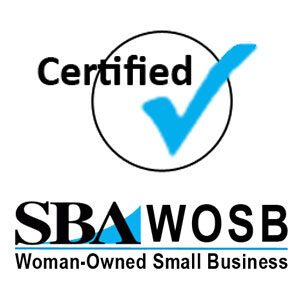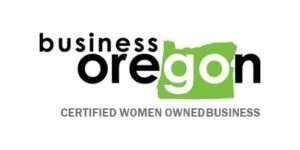A Key to Successful Interviewing: Storytelling
Even for the most seasoned job seekers, the self-promotion part of interviewing for a job feels at least a little bit difficult and at least a little bit artificial. But there’s no doubt that thinking about commonly asked interview questions markedly improves one’s comfort and confidence during the actual process.
It is clear that interviewers often forget their own feelings when they were looking for a job when we see that people *love* to ask questions that feel the most difficult to answer! Here are some of the most common:
- What are your strengths?
- What are your weaknesses?
- Do you have any questions for us?
- Where do you see yourself in five years?
All of the answers require a positive, insightful answer that is unique to you. In rehearsing for these questions, look for how your feelings can connect with what an employer would probably like to hear. This connection between your feelings and the situation you are in are essential for forming that unique, authentic answer that positively resonates with the prospective employer.
We asked local employers what they thought were good answers to these questions and you’ll see from how they responded what are some of the most important qualities in a job candidate. So, the task at hand will be to tie what they want to hear with how you *feel* about the question.
What are your strengths?
Employers in our region had two themes in their preferred answers for this question:
- Demonstration of skills and interest in collaboration (teamwork!)
- Making sure your definition of success encompasses the interviewer(s) definition for that job
Perhaps your immediate feeling about this is “I have no strengths! I’ve never had this job!” If that’s the case, take a moment to consider *why* you are interested in this job. You would not be sitting in the interview if you didn’t apply, so remember that decision and consider these as you form your own answer:
- I just finished my program at Southwestern and I am looking forward to putting those classes into a real life work situation.
- I’m looking forward to learning some new skills from this job, like how you process the information from your clients into your records and how you handle different situations.
- My career coach and I thought this might be a good fit for some of my current skills in _____________, as well as learning opportunities in ________________.
Perhaps, you are already feeling something like, “I really need this job! How do I get them to give it to me?” or other anxious ruminations that fall along the line of “I want people to like me”. Then, take a moment to translate that into something useful in the workplace. Consider these answers as you form your own:
- I want to learn the tasks and follow through successfully, so that other team members feel my participation helps them.
- I want to bring a positive energy to the working situation so that working together is easy and we can focus on tasks.
- I strive to make people comfortable so that we can work together with ease.
- While I don’t necessarily lead a team, I’m a good listener and I pay attention to details so that group time is well spent.
What are your weaknesses?
Most people have seen at least one movie scene where this question was answered with a very bad answer: “I am always late and I hate working with people”, “I always flake out on deadlines and freak out when a boss asks me any questions”, etc. Okay, those are really bad answers, but the flip side also isn’t a good answer. Giving fake answers like “I don’t have any” or “I’m so focused all the time that you’ll probably have to ask me to leave every day” are just as likely to get the plug pulled as the others.
Our regional employers had one clear theme on how to answer this one: give an honest answer that includes how you address the weakness to either overcome it or minimize its negative impact. Think about that for a moment. Think about your weaknesses as not only something you’ve discussed with a coach or other resource as you prepare, but prepare your strategy for addressing the weakness!
- I’ve never had this particular job before, so I will need to find some mentors. I hope to make it a mutually beneficial arrangement so that time my mentor spends time with me is beneficial for that person, too.
- I can procrastinate when I am producing work for the first time, so in order to minimize that, I’ve started writing down questions as I work. When my supervisor has a moment, I’ll then bring up the tasks I haven’t completed yet and run through the questions.
- Sometimes I don’t speak up when I’m in a group. That’s a problem when I need to learn something or when I think the group ought to know about something. I’m practicing speaking up, even if I feel something is a “dumb question”, but when I don’t do that, I write my questions down and find a mentor or my boss and bring them up later.
- Sometimes, I am quick to make an assessment about someone, but I can be wrong. Because I’m aware of jumping to conclusions sometimes, I practice reserving judgment until I have direct experience.
Weaknesses are learning opportunities, not crutches for poor results. So, when you develop your own strategies for addressing your weaknesses, you are not only impressing a prospective employer, you are actually improving your opportunity for success in all your endeavors.
Do you have any questions for us?
Regional employers’ responses to what a good answer was for this question zeroed in on showing interest in the job or the work situation:
- Any question that centers around job tasks or responsibilities
- Asking about goals or the future for the company/department/office
Less frequently, some employers felt that any question about next steps in the interview process was “good”. That said, one can imagine that questions which seem like you think you already got the job could be misconstrued. So rather than that, take this as an excellent opportunity to show that you’ve researched the company. Employers almost uniformly agree that prior knowledge and enthusiasm about the organization goes a long way. As you think about this, try on a few tried and true questions to ask:
- What would you like to see in five years for your department/business?
- What does a typical day for this person in this position look like?
- Is there anything a candidate can do or study to be more successful?
- What kinds of experience do you look for in employees you hire?
- What are the characteristics of your best employees here?
- What is your team/department/business culture?
Where do you see yourself in five years?
We didn’t get a chance to ask our regional employers this one, but it continues to be a popular interview question and a question we all ask ourselves in various forms when we envision our work, our careers, indeed our lives.
But what does someone really want to know? It’s typically one or two things:
- Are you going to stay put in this job for awhile?
- Do you have any career goals for this job?
- Do the goals align with how the job and company?
What if you want to say “not this job”? Think it, but pause. If job isn’t a big career win, but you love the hours or the pay or the flexible time or some other aspect, use that:
- My priority is my family right now, so the hours for this job will help me out for several years.
- I am working on my degree/book/studio album/art project which is a large project, so this job will help me pay my bills as I pursue this dream.
What if you want to say “your job”? Think it, but pause. If the job is of interest because you’d like to get to a higher level or become the supervisor/boss/manager interviewing you, use that:
- The subject matter to do this job is really interesting to me and I feel like there is a lot to learn here. I would want to have time to really go deep and master the material.
- The information and systems I have to learn for this job are really interesting and I’d like to master the material so that one day I might be able to do higher leadership positions, if they are available.
Any question is a version of “can you fit in here Now?”
Notice what we’re doing here in rehearsing out answers: we are tying what an employer wants to hear – i.e. something that makes you in this job benefit the employer – with how you really feel: honesty with context. An employer is going to know that your “career” as a grocery bagger is not your dream, so don’t pretend it is. But finding a reason to be enthusiastic about the job is essential to not only the interview, but your success in that job. So, think it, then bring it!
Answers that have honesty with context give you the positive, confident feeling you need to interview effectively. You never have to, nay never should, tell anyone anything just because that is what that person “wants to hear”. You don’t serve anyone (including you!) with that behavior. But spending time connecting your feelings and preferences with the feelings and preferences of other parties creates mutual benefit – which is, in this writer’s opinion, the most powerful type of benefit of all.



